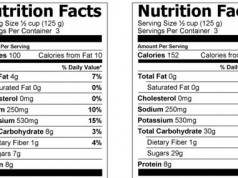Dear Pharmacist,
I have been experiencing what my cardiologist calls “benign” arrhythmias for 2 years. They come and go, and I am unable to link them to any activities, foods or medicines. We’ve tried digoxin and beta blockers, which didn’t work. He says he can fix them with ablation and a pacemaker or just leave them alone for now. Sometimes they make me lightheaded and I get frightened. Do you think I should do the procedure? –S.C., Denver, Colorado
Answer: I feel a second opinion is in order; perhaps you need to see an “electrophysiologist” or a neurologist to get more information. The standard of care is to do ablation (which is sort of like ‘burning’ one of the nodes in your heart) and then install a pacemaker which forces your heart to beat in rhythm.
I just bang my head trying to figure out why it isn’t the “standard of care” to determine underlying cause of heart disease before all the invasive irreversible procedures like ablation, angioplasty, stenting and pacemakers! These procedures have a place and sometimes save lives, but is it ever wrong to check for imbalances of essential minerals, vitamins and amino acids? I wish that testing RBC magnesium was routinely done because a deficiency of magnesium is a contributing factor in heart attack. It’s often used to resuscitate someone whose flatlined.
Recently, I went to the cardiologist with a friend of mine who had an arrhythmia like yours. He was offered the same procedure by his cardiologist. On my recommendation, he saw a functional medicine physician who ordered a blood test (NutrEval by Genova Diagnostics) to evaluate his micronutrient status. Lo and behold, he was found to be deficient in taurine and magnesium.
Both of these were purchased at the health food store along with hawthorn extract. His heart sank into a near-perfect rhythm within two weeks. Had he gone for the ablation procedure, he would have become pacemaker dependent and the underlying deficiencies would have gone undetected!
Here are some heart-healthy nutrients to discuss them with your cardiologist:
Aged Garlic Extract by Kyolic- A recent UCLA study found that this supplement slows and may even reverse atherosclerosis, even in people with moderate plaque build up. Aged garlic is a rock star when it comes to heart health.
Coenzyme Q10 (CoQ10)- This antioxidant stabilizes your heart beat by maintaining sinus rhythm. It prevents and may reverse symptoms of congestive heart failure. You can now buy the active form of this nutrient as “ubiquinol.” Statins and blood pressure pills are drug muggers of this nutrient.
Taurine- The most abundant amino acid in the heart, it improves contractions, dampens down the sympathetic nervous system and may help with PACs, PVCs, pauses and tachycardia. Aspartame and MSG are food additives that are drug muggers of taurine.
I’ve posted an extended version of this article with other heart-healthy nutrients to consider. To read the rest of my column, please visit my website, www.SuzyCohen.com <http://www.SuzyCohen.com>













